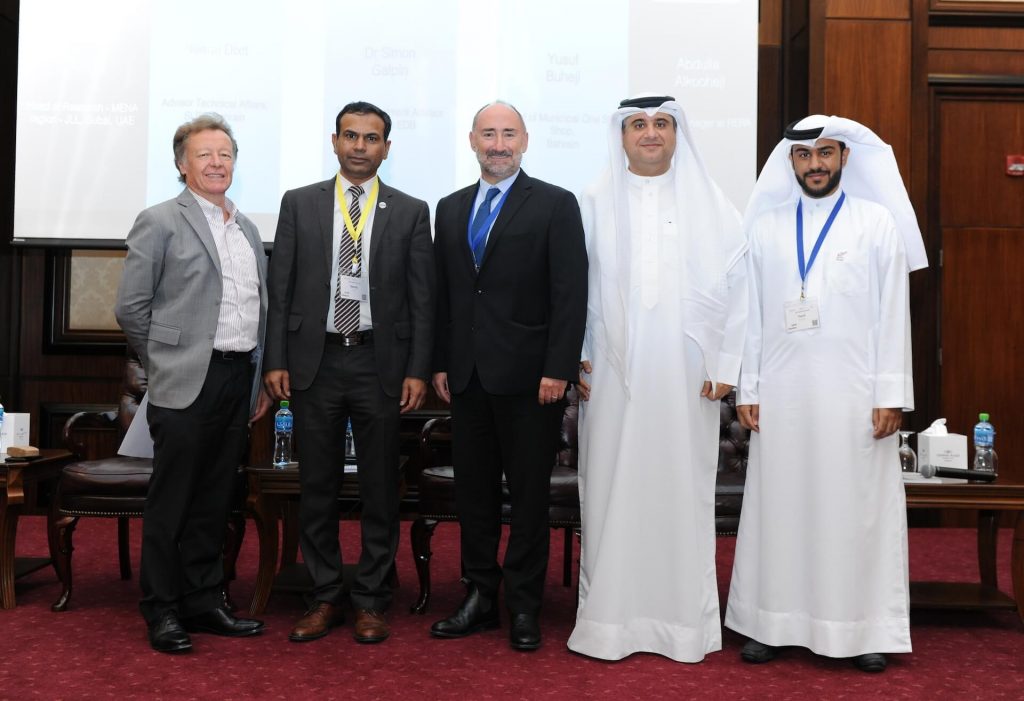The GCC PropTech Time 2019 summit was held in Bahrain on the 17 September 2019. It was organized by HexGn in partnership with the Bahrain Economic Development Board (EDB), the event was sponsored by the industry stalwart Diyar Al Muharraq as the platinum sponsor, and Oxfordcaps, a leading student housing startup based in Singapore and India, as the Gold Sponsor.
This event from HexGn brought together leading experts and decision makers from all sectors of real estate, along with startups and technology companies from 25 plus countries. The event had five roundtable discussion, each focussed on the specific influencers in the real estate lifecycle, in this article we are bringing insights from the Government Roundtable.
Government Roundtable
The Government Roundtable was moderated by Dr. Simon Galpin, (Senior Investment Advisor, Bahrain EDB) and the panellists included Craig Plumb (Head of Research – MENA region, JLL, Dubai), Neeraj Dixit (Advisor Technical Affairs, SLRB, Bahrain), Yusuf Buheji (Chief of Municipal One Stop Shop, Bahrain) and Abdulla Alkooheji (Project Manager, RERA, Bahrain). Dr. Simon Galpin began by introducing the theme of the roundtable – how government can help the real estate ecosystem. The panel was aimed at helping attendees understand how various government agencies are using technology to foster real estate transactions.
Transparency in the Real Estate Market
Transparency within the real estate market can be a driving factor for bringing in capital and can make notable differences to the economy. The government’s role in flow of data to make the ecosystem more transparent is paramount. Open data policies can help investors decide on the right areas to invest in and encourage more investments especially in areas that are witnessing a stagnation in capital flow. Craig Plumb commented on this aspect and said, ‘There is a direct co-relation between the transparency of the market and the amount of investment that is attracted into the real estate market.” Adding to this, Abdulla Alkooheji said that organisations like RERA support this idea and aim to provide enriching and accurate data to various players in the real estate. It aims to bring together the scattered pieces of data to a more comprehensible package that can help investors and other players alike. “We are going to run a pilot program for offering data publicly shortly, which hopefully will develop into a solid repository of information overtime”, he said.
Developing a Strong Digital Infrastructure for Real Estate to Thrive
One of the first steps that SLRB took in the direction of offering tech-driven services was by putting previous transaction maps in a digitized format and making it easily accessible for relevant players. There are efforts being put in to make such data available easily. “Another area where there has been progress with the help of technology is in the land transfer processes. What previously took 3- 5 days now is being done in less than a day, with the help of a number of technological tools”, added Neeraj Dixit. These changes in the way real estate transactions are being enhanced is expected to help Bahrain move up in rankings when it comes to ease of dealing in property.
RERA has the power to issue resolutions in the real estate space. And those in the industry can be rest assured that these resolutions come from a board that is an ideal mix of private and public stakeholders. Government agencies like these are displaying perfect collaboration between the private and public space, helping both the sides see the expectations, challenges, and needs of the other in creating impact in the real estate sector.
When asked about how far has the Municipal One Stop Shop come along in terms of adopting technology or in offering tech-enabled services, Yusuf Buheji told the audience about how getting building permits is another process that has been made easier with the help of technology and support of other tech-enabled agencies like SLRB. He also spoke about key areas of challenges that they are working on – old tech infrastructure and a workforce not up to speed with the technologies used. Addressing these challenges effectively will lay a steady groundwork for proptech and real estate to grow.
Overall, the panel was informative and has helped attendees get a fair idea of how tech ready the real estate landscape in Bahrain and what the government machinery is doing to support it.
